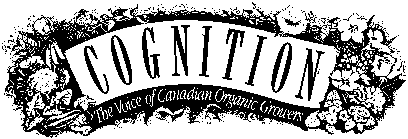

Cognition Index | Virtual Library
| Magazine Rack
Search
| Join the Ecological Solutions Roundtable
THE ORGANIC LANDSCAPE:
UNPAVING PARADISEGet Rid of Your Car and Grow More Tomatoes
by Bob and Helen Hansen
One of the stated aims of Canadian Organic Growers is "to endorse practices which promote and maintain long term soil fertility, reduce fossil fuel uses, reduce pollution, recycle waste, and conserve non-renewable resources".;
For the past ten years, we’ve fulfilled this objective in urban Toronto by using our paved driveway as planter space for growing tomatoes, cucumbers, lettuce, peppers, and flowers. (We have found that beans do not grow well for us in containers.) The asphalt holds solar heat, so that roots warm up daily, plants grow quickly and tomatoes mature early.
In 1979, we sold the family car. More than thirty years of driving and spewing pollutants into the environment seemed long enough, and we were now living within a one-minute walk from a bus stop. Formerly, we lived in a ranch bungalow on the Peel Plain – prime farmland just west of Greater Toronto – and drove 50 km to work and back each day. It was as wearing on the conscience as on the body and soul, and we welcomed the opportunity to put the commuting behind us.
Our driveway is now mainly a spot for container gardening. In the fall of 1993, we broke up some of the asphalt in front of the garage, now a potting and storage shed. We planted raspberry canes and about 60 tulip bulbs, making an L-shaped border some six meters (20 feet) in length. We plan to keep our houseplants in this new bed during the summer. In addition, a few meters from the side door we dug a hole for depositing compost in the winter.
Over time, we collected about ten large containers suitable for planting. We have found the best ones for our purposes to be large plastic pails, available from restaurants and bakeries. We take off the metal handles and melt drainage holes in the bottom with a soldering iron. As well, we made rectangular wooden planters from scrap plywood, and we even use a discarded washing machine tub! On the roadside, we found two large, round, heavy metal "saucers" (their original purpose is a mystery to us) that make excellent trays for holding smaller pots. We made it a point to use containers which would otherwise have littered the roadways or gone to a landfill.
We fill the containers with ordinary garden soil, adding some peat moss for water retention and, when available, composted manure. Watering is done by hose when required. We grow three or four varieties of tomatoes from seed, sowing them in the house in early April and planting them out in mid-May. Lettuce and cucumbers are sown right in the soil in the largest containers. Some lettuce can be seeded as late as August for a fall crop; it doesn’t freeze easily. We save our own seed from the nonhybrids.
We have placed all the containers in full sun near the edge of the asphalt to create a patio area and provide a clear pathway to the back yard. The driveway is right outside our side door, and last year we had it enclosed with a high wooden fence and gate for privacy. This newly fenced driveway-cum-patio provides a safe play area for visiting grandchildren too.
From our driveway containers and a nearby allotment garden plot, we are able to grow enough fresh, organic vegetables to last us the season. Because we don’t have a freezer and prefer to keep the garden area small enough to handle manually, we don’t even attempt to grow a year’s supply of vegetables.
We believe our project would be of interest to the Alliance for a Paving Moratorium, a U.S. coalition of environmental groups which advocates breaking up parking lots to "unpave paradise".
COG members Bob Hansen, a retired electronics technician, and his wife Helen have been married 38 years and have two children and two grandchildren to their credit. In addition to environmental matters, their interests include music appreciation and casual nature study.
Copyright © 1994.
Bob and Helen HansenReprinted with permission. All rights reserved.
Info Request | Services | Become EAP Member | Site Map
Give us your comments about the EAP site
Ecological Agriculture Projects, McGill University (Macdonald
Campus)
Ste-Anne-de-Bellevue, QC, H9X 3V9 Canada
Telephone:
(514)-398-7771
Fax:
(514)-398-7621
Email: info@eap.mcgill.ca
To report problems or otherwise comment on the structure of this site, send mail to the Webmaster